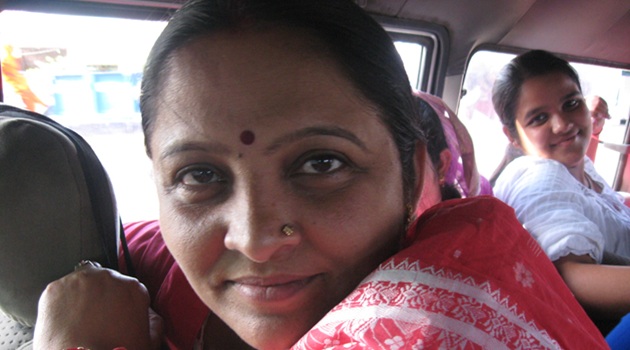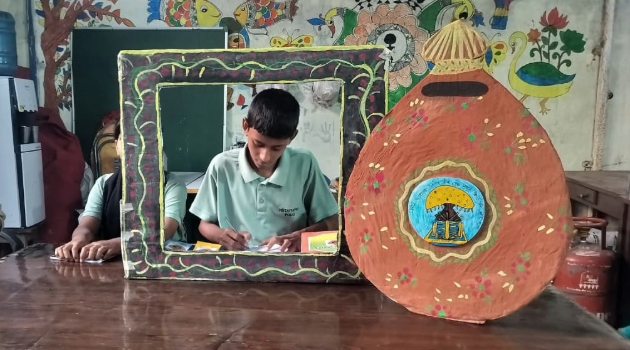Sanjay Kumar and Shruti
There’s a quiet revolution happening in Bihar, and its face is female. For years, political narratives here have been dominated by the complex calculus of caste and patronage. Beneath this noise, the most salient, and increasingly decisive, feature of every recent election has been the effective participation of women. This reality is reflected in recent policy announcements, such as the ₹10,000 cash transfer, which explicitly target this crucial demographic.
Women Outvoting Men: A Decade of Quiet Dominance
Since 2010, women have consistently outvoted men in Bihar’s elections. In the 2020 state polls, for instance, women surpassed male voters in a remarkable 167 of the 243 Assembly seats. This influence continued through the 2024 Lok Sabha elections, where women’s turnout touched 59.45%, creating a significant 5-point gender gap while men lagged at 54.45%.
Bihar’s rural women—farmers, daily-wage earners, and homemakers—started claiming the ballot as an extension of their lived struggles. Their political visibility today owes much to four interlinked transformations: community mobilisation through Jeevika, digital inclusion, participatory governance through Panchayati Raj institutions, and the impact of the state’s liquor prohibition policy.

With over 11 million members, the Jeevika programme, operating under the Bihar Rural Livelihoods Promotion Society (BRLPS), has been the single most crucial engine driving the social and political awakening among rural women. While its primary goal is socio-economic empowerment through microfinance, the indirect political impact is profound: it has provided women, often confined to their homes, with a structured platform to exit the domestic sphere, build collective capacity, and develop powerful networks. These forums transform beneficiaries into ‘Jeevika Didis’ (elder sisters), giving them a respected public identity and the confidence to negotiate for public services, challenge social ills like dowry and domestic violence, and, most importantly, assert their political agency.
Digital empowerment has further enabled this transformation. Affordable smartphones and government-backed training programmes have brought thousands of women into the orbit of digital literacy. These platforms have not only provided tools for entrepreneurship but have also opened doors to global information networks. Social media, once a distant concept, now bridges formal and informal learning spaces. It democratizes access to knowledge, allowing women in remote districts to discuss government schemes, share grievances, and form learning communities across time and geography. This quiet digital revolution has given rural Bihar’s women a new vocabulary of political expression—one that moves from the courtyard to the public square.
Digital Divide: Access Without Agency
However, this digital access has yet to fully translate into genuine economic agency. Economics Professor Kumari Veena and scholar Uttam Kumar highlight that Bihar is facing a severe gender digital divide, ranking last among Indian states for the percentage of women using the internet, with only about 20.6% of women in the state having ever used the internet, compared to 43.6% of men. The disparity is rooted in structural barriers: poverty, a massive education gap (with the female literacy rate at 57.8% versus 78.5% for men), and persistent social norms that restrict women’s access to technology and limit their time for learning due to primary caretaker responsibilities. This means that despite high bank account ownership achieved through Direct Benefit Transfers, many women still rely on male relatives for transactions, leaving their true financial independence fragile.
Amidst this, the introduction of 50% reservation for women in panchayats and 35% in government jobs has allowed female leadership to take visible root. Panchayat meetings, once male monopolies, now feature women who speak with authority about land disputes, local infrastructure, and education. Schemes like the Mukhyamantri Mahila Rojgar Yojana have further expanded women’s access to financial credit, making them active contributors to the local economy. These interventions have created an ecosystem where economic agency feeds political confidence.
One of the most striking moments of women’s collective assertion came with the 2015 liquor prohibition law. Women across Bihar had long associated alcohol with domestic violence and financial distress. Their unified voice for prohibition reshaped the political landscape, compelling parties to recognize women not as beneficiaries but as a formidable, independent constituency. The policy’s later flaws—black markets and misuse by authorities—did not erase its symbolic power. It remains a powerful reminder that when women mobilize around lived experience, they can compel the state to change the course of governance.
What Comes Next: From Beneficiaries to Decision-Makers
To sustain this momentum, Bihar’s democracy must go beyond mere representation. Transparent electoral rolls, accountable manifestos, and stronger leadership pipelines are essential. But the most vital next step is a commitment to closing the gap between ‘access’ and ‘agency,’ ensuring women don’t just receive benefits but gain control over them.
As Susan B. Anthony declared over a century ago, “There never will be complete equality until women themselves help to make laws and elect lawmakers.” The women of Bihar are already doing that. They are shaping the policies that once ignored them and rewriting the hierarchies that once silenced them. This moment, when women outvote men and reshape the meaning of political participation, could well be remembered as a true turning point in the state’s history. It underscores how caste arithmetic increasingly intersects with gender consciousness, giving rise to a more grounded and transformative form of citizenship.






